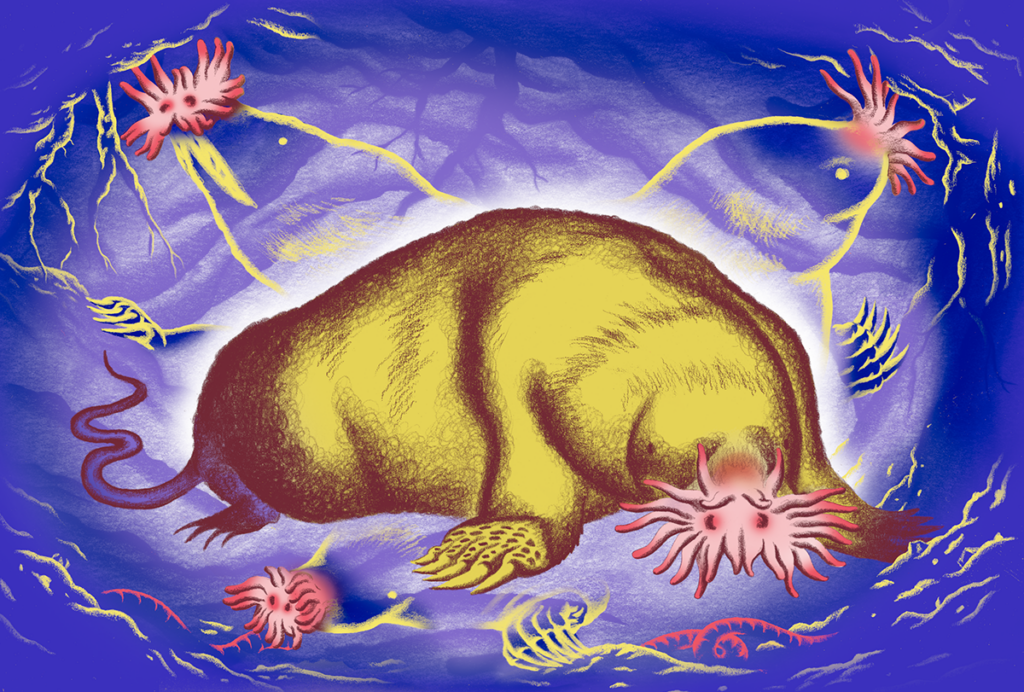Alan Packer joined the Simons Foundation in 2009 as an associate director of research. He earned his undergraduate degree in biology from Brandeis University and his Ph.D. in cell biology and genetics from the Weill Cornell Graduate School of Medical Sciences in New York City. His graduate work with Rosemary Bachvarova focused on germ cell development using the mouse as a model system. With Debra Wolgemuth at the Columbia University College of Physicians and Surgeons, he carried out postdoctoral work on developmental control genes (HOX genes) and the mechanisms of their regulation in the mouse embryo. In 2000, Packer joined the editorial staff of Nature Genetics, the leading journal in the field of genetics, where he was involved in all aspects of the journal’s production. His responsibilities included overseeing peer review of submitted manuscripts, with an emphasis on the genetics of human disease, as well as commissioning reviews, writing press releases and editorials, updating the journal’s website, and preparing special issues of the journal. He served as acting editor in 2002-2003. During his tenure at Nature Genetics, he established a wide range of contacts in the genetics community through attendance at meetings and visits with scientists in their labs. Packer has also done freelance writing on a number of topics for Nature and other scientific publications.
Alan Packer
From this contributor
Startled fish help sound out sensory overload in autism
There is some evidence that neural habituation — the process by which neurons get used to sensory stimuli — goes awry in autism. Mutant fish may help us understand the sensory sensitivities that often accompany the disorder, says Alan Packer.

Startled fish help sound out sensory overload in autism
Study uncovers link between autism risk gene, language
Mutations in TBR1, a candidate gene for autism, compromise its functions and its ability to bind its partners — including FOXP2. Alan Packer explores the gene’s emerging link to language.

Study uncovers link between autism risk gene, language
Schizophrenia milestone holds lessons for autism
A long-awaited report, published today in Nature, confirms that with access to tens of thousands of genomes, researchers can identify common genetic risk factors for a complex neuropsychiatric disorder.
Multimodal mouse model for autism
A new paper accomplishes a rare feat, linking human genetics with physiology, behavior and a therapeutic in a compelling mouse model of autism, says Alan Packer.
Keeping score
An effort to rank autism genes on the strength of the evidence implicating them in the disorder will provide researchers with a focused list of genes to study, says Alan Packer.
Explore more from The Transmitter
Neuro’s ark: Understanding fast foraging with star-nosed moles
“MacArthur genius” Kenneth Catania outlined the physiology behind the moles’ stellar foraging skills two decades ago. Next, he wants to better characterize their food-seeking behavior.

Neuro’s ark: Understanding fast foraging with star-nosed moles
“MacArthur genius” Kenneth Catania outlined the physiology behind the moles’ stellar foraging skills two decades ago. Next, he wants to better characterize their food-seeking behavior.
Largest leucovorin-autism trial retracted
A reanalysis of the data revealed errors and failed to replicate the results.

Largest leucovorin-autism trial retracted
A reanalysis of the data revealed errors and failed to replicate the results.
NIH scraps policy that classified basic research in people as clinical trials
The policy aimed to increase the transparency of research in humans but created “a bureaucratic nightmare” for basic neuroscientists.

NIH scraps policy that classified basic research in people as clinical trials
The policy aimed to increase the transparency of research in humans but created “a bureaucratic nightmare” for basic neuroscientists.